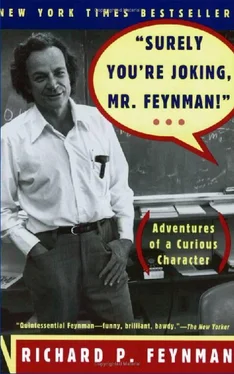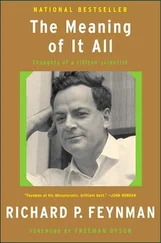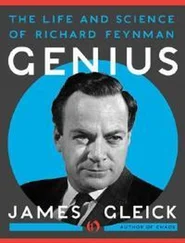After a while I could tell I was completely cut out of the conversation, so I got up and started away. The Japanese ambassador, who was also sitting at that table, jumped up and walked after me. “Professor Feynman,” he said, “there is something I should like to tell you about diplomacy.”
He went into a long story about how a young man in Japan goes to the university and studies international relations because he thinks he can make a contribution to his country. As a sophomore he begins to have slight twinges of doubt about what he is learning. After college he takes his first post in an embassy and has still more doubts about his understanding of diplomacy, until he finally realizes that nobody knows anything about international relations. At that point, he can become an ambassador! “So Professor Feynman,” he said, “next time you give examples of things that everybody talks about that nobody knows about, please include international relations!”
He was a very interesting man, and we got to talking. I had always been interested in how it is the different countries and different peoples develop differently. I told the ambassador that there was one thing that always seemed to me to be a remarkable phenomenon: how Japan had developed itself so rapidly to become such a modern and important country in the world. “What is the aspect and character of the Japanese people that made it possible for the Japanese to do that?” I asked.
The ambassador answered in a way I like to hear: “I don’t know,” he said. “I might suppose something, but I don’t know if it’s true. The people of Japan believed they had only one way of moving up: to have their children educated more than they were; that it was very important for them to move out of their peasantry to become educated. So there has been a great energy in the family to encourage the children to do well in school, and to be pushed forward. Because of this tendency to learn things all the time, new ideas from the outside would spread through the educational system very easily. Perhaps that is one of the reasons why Japan has advanced so rapidly.”
All in all, I must say I enjoyed the visit to Sweden, in the end. Instead of coming home immediately, I went to CERN, the European center for nuclear research in Switzerland, to give a talk. I appeared before my colleagues in the suit that I had worn to the King’s Dinner—I had never given a talk in a suit before—and I began by saying, “Funny thing, you know; in Sweden we were sitting around, talking about whether there are any changes as a result of our having won the Nobel Prize, and as a matter of fact, I think I already see a change: I rather like this suit.”
Everybody says “Booooo!” and Weisskopf jumps up and tears off his coat and says, “We’re not gonna wear suits at lectures!”
I took my coat off, loosened my tie, and said, “By the time I had been through Sweden, I was beginning to like this stuff, but now that I’m back in the world, everything’s all right again. Thanks for straightening me out!” They didn’t want me to change. So it was very quick: at CERN they undid everything that they had done in Sweden.
It’s nice that I got some money—I was able to buy a beach house—but altogether, I think it would have been much nicer not to have had the Prize—because you never, any longer, can be taken straightforwardly in any public situation.
In a way, the Nobel Prize has been something of a pain in the neck, though there was at least one time that I got some fun out of it, Shortly after I won the Prize, Gweneth and I received an invitation from the Brazilian government to be the guests of honor at the Carnaval celebrations in Rio. We gladly accepted and had a great time. We went from one dance to another and reviewed the big street parade that featured the famous samba schools playing their wonderful rhythms and music. Photographers from newspapers and magazines were taking pictures all the time—”Here, the Professor from America is dancing with Miss Brazil.”
It was fun to be a “celebrity,” but we were obviously the wrong celebrities. Nobody was very excited about the guests of honor that year. I found out later how our invitation had come about. Gina Lollobrigida was supposed to be the guest of honor, but just before Carnaval, she said no. The Minister of Tourism, who was in charge of organizing Carnaval, had some friends at the Center for Physical Research who knew I had played in a samba band, and since I had recently won the Nobel Prize, I was briefly in the news, In a moment of panic the Minister and his friends got this crazy idea to replace Gina Lollobrigida with the professor of physics!
Needless to say, the Minister did such a bad job on that Carnaval that he lost his position in the government.
Bringing Culture to the Physicists
Nina Byers, a professor at UCLA, became in charge of the physics colloquium sometime in the early seventies. The colloquia are normally a place where physicists from other universities come and talk pure technical stuff. But partly as a result of the atmosphere of that particular period of time, she got the idea that the physicists needed more culture, so she thought she would arrange something along those lines: Since Los Angeles is near Mexico, she would have a colloquium on the mathematics and astronomy of the Mayans—the old civilization of Mexico.
(Remember my attitude to culture: This kind of thing would have driven me crazy if it were in my university!)
She started looking for a professor to lecture on the subject, and couldn’t find anybody at UCLA who was quite an expert. She telephoned various places and still couldn’t find anybody.
Then she remembered Professor Otto Neugebauer, of Brown University, the great expert on Babylonian mathematics [2] When I was a young professor at Cornell, Professor Neugebauer had come one year to give a sequence of lectures, called the Messenger Lectures, on Babylonian mathematics. They were wonderful, Oppenheimer lectured the next year. I remember thinking to myself, “Wouldn’t it be nice to come, someday, and be able to give lectures like that!” Some years later, when I was refusing invitations to lecture at various places, I was invited to give the Messenger Lectures at Cornell. Of course I couldn’t refuse, because I had put that in my mind so I accepted an invitation to go over to Bob Wilson’s house for a weekend and we discussed various ideas. The result was a series of lectures called “The Character of Physical Law.”
. She telephoned him in Rhode Island and asked if he knew someone on the West Coast who could lecture on Mayan mathematics and astronomy.
“Yes,” he said. “I do. He’s not a professional anthropologist or a historian; he’s an amateur. But he certainly knows a lot about it. His name is Richard Feynman.”
She nearly died! She’s trying to bring some culture to the physicists, and the only way to do it is to get a physicist!
The only reason I knew anything about Mayan mathematics was that I was getting exhausted on my honeymoon in Mexico with my second wife, Mary Lou. She was greatly interested in art history, particularly that of Mexico. So we went to Mexico for our honeymoon and we climbed up pyramids and down pyramids; she had me following her all over the place. She showed me many interesting things, such as certain relationships in the designs of various figures, but after a few days (and nights) of going up and down in hot and steamy jungles, I was exhausted.
In some little Guatemalan town in the middle of nowhere we went into a museum that had a case displaying a manuscript full of strange symbols, pictures, and bars and dots. It was a copy (made by a man named Villacorta) of the Dresden Codex, an original book made by the Mayans found in a museum in Dresden. I knew the bars and dots were numbers. My father had taken me to the New York World’s Fair when I was a little kid, and there they had reconstructed a Mayan temple. I remembered him telling me how the Mayans had invented the zero and had done many interesting things.
Читать дальше












